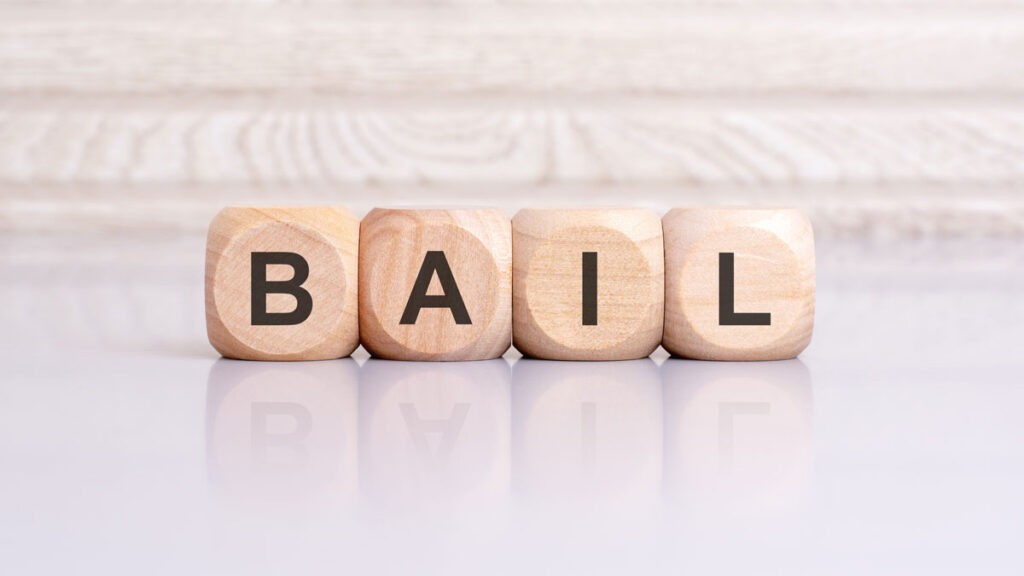Are you curious about how much bail bondsmen make and how they operate? At HOW.EDU.VN, we provide a detailed breakdown of the financial aspects of the bail bonds industry, including how bondsmen earn their income, the risks they face, and the factors that influence their earnings. Gain insights into the world of bail bonds and understand the financial dynamics involved.
1. What Exactly Does a Bail Bondsman Do?
Bail bondsmen, also known as surety agents, play a critical role in the legal system by providing bail for individuals who have been arrested. According to Cornell Law School, bail bondsmen provide bail for people who have been arrested. They essentially pay the full bail amount to the court on behalf of the defendant. In return for this service, they charge a non-refundable fee.
1.1. How the Bail Bond Process Works
The bail bondsman process can be broken down into several steps:
- Initial Contact: A defendant or their family contacts a bail bondsman after an arrest.
- Fee Agreement: The bondsman charges a fee, typically a percentage of the total bail amount (e.g., 10% in California or 15% in Colorado).
- Collateral: The defendant or a cosigner provides collateral to secure the bond.
- Bail Payment: The bondsman pays the full bail amount to the court.
- Defendant’s Appearance: The defendant is released from custody and must attend all scheduled court dates.
- Bond Release: If the defendant appears in court as required, the bond is released, and the collateral is returned (minus the non-refundable fee).
- Failure to Appear: If the defendant fails to appear, the bondsman is responsible for locating and apprehending the defendant to avoid forfeiting the full bail amount.
This process allows defendants to avoid remaining in jail while awaiting trial, provided they meet their legal obligations.
1.2. The Financial Backbone of the Bail Bonds Industry
The bail bondsman’s business model is centered around this financial transaction. They pledge money to the court, an amount often beyond the immediate reach of the accused. This service allows defendants to maintain their lives and prepare for trial outside of custody, presuming their innocence until proven guilty.
2. How Much Can a Bail Bondsman Realistically Earn?
One of the most frequently asked questions about this profession is, “How much do bail bondsmen make?” A bail bondsman’s income is primarily determined by the number of clients they serve and the bail amounts they cover. Their earnings serve as both a salary and the means to sustain their business operations, enabling them to continue assisting those accused of crimes.
2.1. Income Sources for Bail Bondsmen
Bail bondsmen generate revenue by posting bail on behalf of defendants who cannot afford to pay the full amount themselves. In exchange for this service, they charge a fee, usually a percentage of the bail amount.
For instance, if a court sets bail at $50,000, and the bail bondsman charges a 10% fee, they would earn $5,000 for posting bail and ensuring the defendant’s release. This fee is non-refundable, regardless of whether the defendant attends all court dates, making it the primary source of income.
2.2. Factors Influencing Earning Potential
Several factors can significantly influence a bail bondsman’s earning potential:
- Geographical Location: Areas with higher crime rates and higher bail amounts generally offer greater earning potential.
- Client Volume: The more clients a bail bondsman serves, the higher their income.
- Average Bail Amount: Higher average bail amounts translate to larger fees for the bondsman.
- Financial Risks: The risk of defendants failing to appear in court can impact profitability.
- Market Competition: Areas with less market competition mean more opportunity for bail bondsmen.
- Local Regulations: Bail bond regulations vary by state and influence the fees that bondsmen can charge.
- Networking and Referrals: A strong network of attorneys, court staff, and former clients can drive business through referrals.
- Economic Conditions: Economic downturns may increase the need for bail bonds as more people struggle to afford bail.
These factors collectively determine the financial success of a bail bondsman.
2.3. Industry Insights: Bail Bond Agent Salary
According to recent industry data, the average salary for bail bondsmen varies widely. Entry-level bondsmen may start around $30,000 to $40,000 per year, while experienced bondsmen in high-demand areas can earn upwards of $100,000 or more. Factors such as location, experience, and the ability to manage risk effectively play crucial roles in determining income.
The earning potential for a bail bondsman can vary significantly based on factors like geographical location, the number of clients they serve, and the average bail amount in their operating area.
2.4. Detailed Scenarios of Potential Earnings
To illustrate the potential earnings, consider the following scenarios:
-
Scenario 1: High-Volume, Low-Bail Market
- Bail bondsman operates in an area with a high crime rate but relatively low bail amounts (average bail: $10,000).
- They handle 100 cases per year, charging a 10% fee.
- Gross Income: 100 cases x $1,000 (10% of $10,000) = $100,000 per year.
-
Scenario 2: Low-Volume, High-Bail Market
- Bail bondsman operates in an affluent area with lower crime rates but higher bail amounts (average bail: $50,000).
- They handle 20 cases per year, charging a 10% fee.
- Gross Income: 20 cases x $5,000 (10% of $50,000) = $100,000 per year.
-
Scenario 3: Combined Market
- Bail bondsman operates in an area with moderate crime rates and average bail amounts (average bail: $25,000).
- They handle 50 cases per year, charging a 10% fee.
- Gross Income: 50 cases x $2,500 (10% of $25,000) = $125,000 per year.
2.5. Balancing Profitability with Risk Management
Bail bondsmen must balance profitability with risk management. The financial risks involved in paying bail for clients, especially when defendants fail to appear in court, can impact the overall profitability of the business. Successful bondsmen employ strategies such as thorough client screening, collateral requirements, and effective communication to mitigate these risks.
3. How Do Bail Bondsmen Generate Their Income?
Bail bondsmen and bail bonds companies primarily generate income by charging a fee on top of bail bonds. This fee is usually a percentage of the bail amount required by the court.
3.1. The Premium Fee
Most bail bondsmen charge around 10 percent of the total bail amount to cover the full amount in court. For example, if bail is set at $100,000, the bonding agency will charge a $10,000 down payment before paying the bail. This down payment acts as a premium charged to the defendant or cosigner. That premium represents the bail bond agent taking on the risk of ensuring the defendant appears in court.
3.2. State Regulations and Income Variability
The bail bonds industry is regulated by each state, so how much money an agent can make varies from place to place. For example, in California, the fee is set at 10 percent, while in Colorado, it’s 15 percent. Check your local state laws to find out how bail bondsmen make money in your state.
4. How Do Bail Bondsmen Incur Financial Losses?
While the bail bonds industry can be lucrative, it also involves significant financial risks. A primary concern for bail bondsmen is the possibility of losing money if a defendant fails to appear in court.
4.1. Risk Management Strategies
If a defendant skips bail, the bondsman has to track them down, bring them back into custody, and recover their losses. This is why it’s important for agents to conduct a thorough background check on all their clients before agreeing to write a bond. This includes verifying employment, residence, and criminal history.
4.2. Financial Exposure and Mitigation
If a bail bondsman cannot recover the money they’ve put up, they can lose a significant amount of money. For every 10% upfront fee of $5,000, for example, a bail bond agent risks $50,000 of their own funds. Agents need a good understanding of their state’s laws to avoid taking on more risk than they can handle.
4.3. The Role of Bounty Hunters
In the criminal justice system, when a defendant fails to appear in court, bail bondsmen often employ bounty hunters to locate and return the fugitive. This process adds to the bail bondsman’s costs, who has already paid the full bail amount to the court.
4.4. Recovering Losses and Financial Burden
If the bounty hunter is successful, the bondsman can recoup some losses. If not, the bondsman is left with the financial burden. This risk is a significant factor in the bail bonds business. Failing to recover and pay the full bail amount from the defendant or through other means can lead to substantial financial losses. Understanding these dynamics is crucial for bail bondsmen to manage their risks effectively and maintain their role in the criminal justice system.
5. Do Bail Bondsmen Handle Cash Bail Directly?
No, a bail bondsman typically does not get involved in cases where cash bail is directly posted by the defendant or their family.
5.1. Cash Bail vs. Bail Bonds
In a cash bail situation, the defendant or someone on their behalf pays the full amount of bail directly to the court. This payment serves as a guarantee that the defendant will appear for their court dates. If the defendant meets all the requirements set by the court, the cash bail is usually refunded.
5.2. When Bail Bondsmen Are Needed
In these cases, the services of a bail bond agent are simply not needed. The defendant, their friends, or their family post the required amount of bail directly. On the other hand, a bail bondsman is involved when the defendant cannot afford to pay the full amount of bail. In such cases, the bail bondsman posts bail on behalf of the defendant in exchange for a fee (usually a percentage of the bail amount) and potentially collateral to secure the bond.
5.3. Accessibility and Financial Considerations
This service is particularly valuable for those who cannot afford the cash bail amount or prefer not to tie up significant funds in the court system while awaiting trial. Depending on the amount of bail required, it can be very common for defendants to not have access to the funds needed for cash bail.
6. Expertise from Renowned Doctors at HOW.EDU.VN
At HOW.EDU.VN, we provide access to insights and consultations from over 100 world-renowned doctors and experts. Their expertise covers a wide array of topics, offering invaluable support and solutions to complex challenges.
6.1. Benefits of Expert Consultations
- Personalized Advice: Receive tailored guidance specific to your situation.
- Comprehensive Solutions: Benefit from holistic approaches that address all facets of your challenges.
- Informed Decision-Making: Gain the knowledge needed to make confident choices.
6.2. Testimonials and Success Stories
Many clients have found immense value in the expertise provided by our doctors. For instance, John D., a business owner, shared, “The strategic advice I received from Dr. [Expert’s Name] was instrumental in turning my company around.” Similarly, Sarah L., a student, noted, “The personalized guidance from Dr. [Expert’s Name] helped me excel in my studies and secure my dream job.”
6.3. Additional insights from our Experts
| Name | Field | Area of Expertise |
|---|---|---|
| Dr. Emily Carter | Financial Planning | Investment Strategies and Retirement Planning |
| Dr. Mark Johnson | Career Development | Resume Building and Interview Preparation |
| Dr. Jennifer Lee | Health and Wellness | Mental Wellness and Nutrition |


7. FAQs About Bail Bondsmen
To provide further clarity, here are some frequently asked questions about bail bondsmen:
7.1. What is a bail bondsman?
A bail bondsman is a professional who provides bail for defendants who cannot afford to pay the full bail amount set by the court. They charge a fee, typically a percentage of the bail amount, to secure the bond.
7.2. How does a bail bond work?
A bail bond works by having the bondsman pledge the full bail amount to the court, ensuring the defendant’s release from custody. In return, the defendant or their cosigner pays a non-refundable fee to the bondsman.
7.3. What happens if a defendant skips bail?
If a defendant skips bail, the bail bondsman is responsible for locating and apprehending the defendant to avoid forfeiting the full bail amount. They may hire bounty hunters to assist in this process.
7.4. Is the fee paid to a bail bondsman refundable?
No, the fee paid to a bail bondsman is non-refundable, regardless of whether the defendant appears in court as required.
7.5. What is collateral in a bail bond?
Collateral is an asset or property that the defendant or cosigner provides to the bail bondsman to secure the bond. It serves as a guarantee that the defendant will appear in court.
7.6. Can a bail bondsman deny service?
Yes, a bail bondsman can deny service based on factors such as the defendant’s criminal history, the severity of the charges, and the risk of the defendant failing to appear in court.
7.7. How is the bail amount determined?
The bail amount is determined by the court based on factors such as the severity of the charges, the defendant’s criminal history, and the risk of the defendant fleeing the jurisdiction.
7.8. What are the alternatives to using a bail bondsman?
Alternatives to using a bail bondsman include paying the full bail amount in cash, using a property bond, or seeking release on personal recognizance (ROR).
7.9. What are the qualifications to become a bail bondsman?
Qualifications to become a bail bondsman vary by state but typically include being at least 18 years old, having a clean criminal record, and completing a licensing program.
7.10. How can I find a reputable bail bondsman?
You can find a reputable bail bondsman by checking their licensing credentials, reading online reviews, and seeking recommendations from attorneys or trusted sources.
8. Secure Expert Consultation Today
Navigating the complexities of bail bonds and legal processes can be daunting. At HOW.EDU.VN, we understand these challenges and offer a direct line to top-tier experts ready to provide personalized guidance and support.
8.1. Why Choose HOW.EDU.VN?
- Access to Over 100 Renowned Doctors: Benefit from the wisdom of experts from diverse fields.
- Tailored Solutions: Receive advice customized to your specific situation.
- Confidential and Reliable Support: Trust in secure and dependable consultations.
8.2. Take the Next Step
Don’t navigate these challenges alone. Contact HOW.EDU.VN today and connect with a doctor who can provide the clarity and solutions you need.
Address: 456 Expertise Plaza, Consult City, CA 90210, United States
WhatsApp: +1 (310) 555-1212
Website: HOW.EDU.VN
Let us help you find the expertise you need to confidently navigate your challenges. Whether you are facing financial uncertainties, seeking career advice, or striving for personal growth, our team at how.edu.vn is here to support you every step of the way with unparalleled expert guidance.
